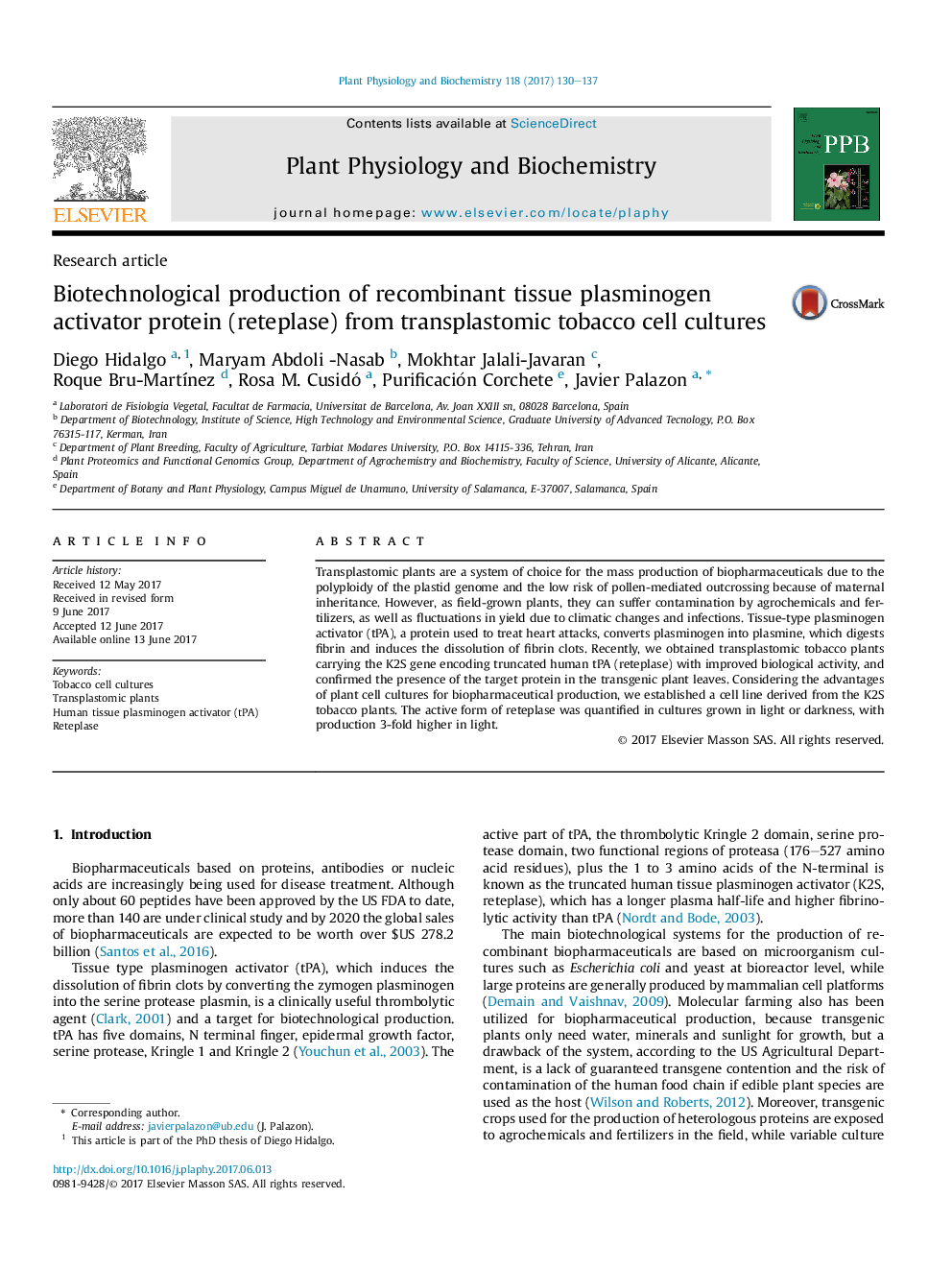| کد مقاله | کد نشریه | سال انتشار | مقاله انگلیسی | نسخه تمام متن |
|---|---|---|---|---|
| 5515429 | 1541903 | 2017 | 8 صفحه PDF | دانلود رایگان |
- Reteplase was produced in cell cultures derived from K2S transplastomic tobacco plants.
- Heterologous rtPA protein was successfully characterized by mass spectrometry.
- Purified native reteplase showed activity against plasminogen.
- Reteplase production in the K2S cell cultures was enhanced by light.
Transplastomic plants are a system of choice for the mass production of biopharmaceuticals due to the polyploidy of the plastid genome and the low risk of pollen-mediated outcrossing because of maternal inheritance. However, as field-grown plants, they can suffer contamination by agrochemicals and fertilizers, as well as fluctuations in yield due to climatic changes and infections. Tissue-type plasminogen activator (tPA), a protein used to treat heart attacks, converts plasminogen into plasmine, which digests fibrin and induces the dissolution of fibrin clots. Recently, we obtained transplastomic tobacco plants carrying the K2S gene encoding truncated human tPA (reteplase) with improved biological activity, and confirmed the presence of the target protein in the transgenic plant leaves. Considering the advantages of plant cell cultures for biopharmaceutical production, we established a cell line derived from the K2S tobacco plants. The active form of reteplase was quantified in cultures grown in light or darkness, with production 3-fold higher in light.
Journal: Plant Physiology and Biochemistry - Volume 118, September 2017, Pages 130-137
